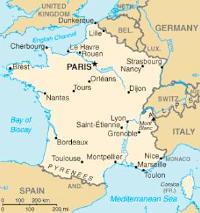Part I: Series Introduction PARIS -- Since the time of Gen. De Gaulle, France's posture towards the United States can be summed up in the familiar expression, "Friend, ally, non-aligned." A source of French pride and American distrust, the formula has haunted France's historically stormy relationship with NATO, and served as the geopolitical expression of l'exception française, France's cultural identity of exceptionalism. It took on added significance since the emergence of the European Union, of which France was and remains a driving force. The need to balance its two principle relationships -- one a strategic alliance with political implications, the other a political project with strategic implications -- while still maintaining its autonomy to act in its own interests when necessary can be found at the heart of the French foreign policy debate. While no one seriously advocates one pole of the spectrum to the exclusion of the other, the eternal question remains the right dose of each. Which explains why President Sarkozy's proposal to formally reintegrate into the NATO command structure has been the subject of such scrutiny, discussion and debate. The proposal is not unprecedented. François Mitterand broached the subject back in 1991. Most recently, in 1996, Jacques Chirac raised the possibility of a French reintegration in return for the southern regional command being placed under French officers. It's also a relatively formal step at this point, in the sense that France is already an active participant and contributor to the alliance. According to Jean-Pierre Maulny of the Institut de Relations Internationales et Stratégique, France has progressively reintegrated into NATO since the end of the Cold War in 1989. "We're 90 percent in it," he explained. "There's just the Defense Planning Committee (DPC), the Nuclear Planning Group, and the Integrated Military Command (IMC) that we're still not a part of." Militarily, Maulny said, the reintegration won't change anything. But he, like many others, characterized the proposal to return to the DPC and IMC as an "obvious gesture towards the United States." It's that symbollism that has invested the move with a political significance that in many ways exceeds its concrete impact.
France’s Strategic Posture: NATO Reintegration and European Defense

